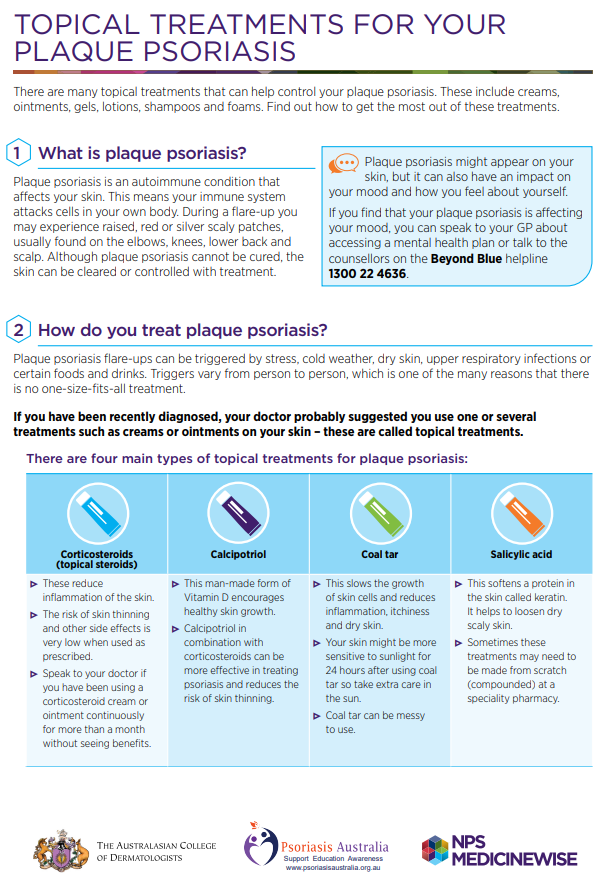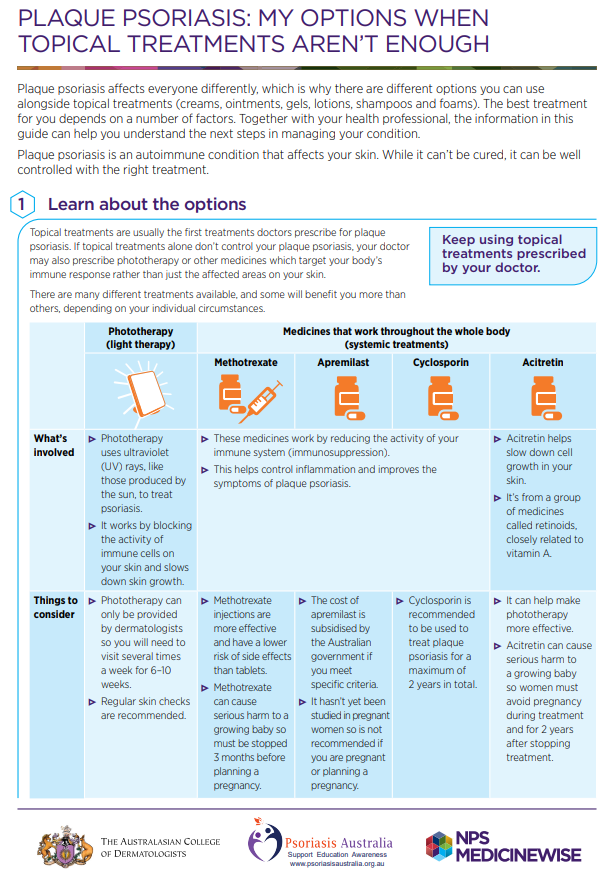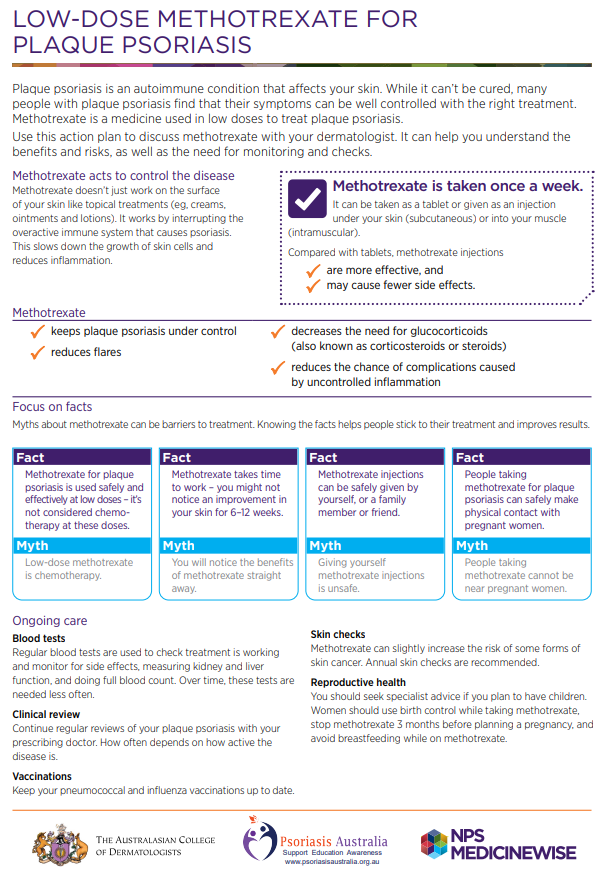Psoriasis can be improved, and sometimes cleared, by regular use of a treatment or several treatments. Psoriasis can come back (relapses) if treatment is stopped. Read more about psoriasis.
Different treatments may be necessary to keep your psoriasis stable or to control a flare-up.
On this page, you can find the following information:
- Emollients and moisturisers
- Steroid creams or ointments
- Calcipotriol (Daivonex)
- Salicylic acid
- Coal tar
- Phototherapy
- Pimecrolimus and tacrolimus
- Acitretin
- Methotrexate
- Etanercept (Enbrel), adalimumab (Humira), infliximab (Remicade)









